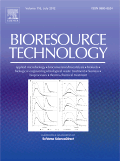
Bioresources and Bioprocessing
metrics 2024
Pioneering Advances in Biotechnology and Food Science
Introduction
Bioresources and Bioprocessing is an esteemed open-access journal published by SPRINGER HEIDELBERG, dedicated to the innovative fields of biomedical engineering, biotechnology, food science, and renewable energy. Since its inception in 2014, the journal has rapidly established itself as a leading platform for high-quality research, boasting a Q2 ranking in key categories such as Biomedical Engineering and Biotechnology, and an impressive Q1 status in Food Science for 2023. With robust Scopus rankings placing it in the top percentiles across multiple disciplines, Bioresources and Bioprocessing serves not only as a conduit for original research but also for critical insights into sustainable bioprocessing techniques that contribute to environmental stewardship. It is particularly aimed at researchers, professionals, and students committed to advancing knowledge in the bioprocessing sphere, promoting evidence-based innovations that leverage biological resources for diverse applications. Emphasizing open access, the journal ensures that cutting-edge research is readily available to a global audience, reinforcing its commitment to scientific communication and collaboration.
Metrics 2024
 -
- 4.30
4.30 5.20
5.20 -
-Metrics History
Rank 2024
IF (Web Of Science)
JCI (Web Of Science)
Quartile History
Similar Journals

PREPARATIVE BIOCHEMISTRY & BIOTECHNOLOGY
Elevating scientific discourse in biochemistry and biotechnology.PREPARATIVE BIOCHEMISTRY & BIOTECHNOLOGY, published by Taylor & Francis Inc, serves as a vital platform for advancing research in the fields of biochemistry, biotechnology, and related areas of medicine. With an ISSN of 1082-6068 and an E-ISSN of 1532-2297, this journal has established itself with a notable Q3 ranking in the 2023 categories of Biochemistry, Biotechnology, and Miscellaneous Medicine, reflecting its relevance and contribution to these disciplines. The journal encompasses a wide range of topics, providing crucial insights into preparative methods, innovative biotechnological applications, and their implications for various medical advancements. Although not open access, the journal's rich content is crucial for researchers and professionals aiming to stay abreast of the latest developments and methodologies in biochemistry and biotechnology. With an enduring commitment to excellence since its inception in 1996, the journal remains an essential resource for academics and practitioners dedicated to advancing scientific knowledge and practical applications.

Synthetic and Systems Biotechnology
Unlocking Innovation Through Synthetic SystemsSynthetic and Systems Biotechnology, published by KEAI PUBLISHING LTD, is a pioneering open-access journal that has made significant contributions to the fields of applied microbiology, biotechnology, biomedical engineering, genetics, and structural biology since its inception in 2016. With an ISSN of 2405-805X, this journal is committed to fostering innovative research and interdisciplinary collaboration, providing a platform for the dissemination of high-quality studies that push the boundaries of scientific knowledge. Recognized for its excellence, it holds prestigious Q1 rankings in both Applied Microbiology and Biotechnology as well as Biomedical Engineering in 2023, alongside notable Q2 rankings in Genetics and Structural Biology. Researchers, professionals, and students alike can access cutting-edge research that explores the dynamic interplay between synthetic biology and systems biology, driving advancements that could reshape health, industry, and environmental sustainability. By operating under an open-access model, Synthetic and Systems Biotechnology ensures that new findings are accessible to a global audience, thereby maximizing the impact and reach of the published work and paving the way for future discoveries.

Biomass Conversion and Biorefinery
Advancing interdisciplinary collaboration in renewable energy research.Biomass Conversion and Biorefinery, published by Springer Heidelberg, is a prominent peer-reviewed journal dedicated to advancing the field of renewable energy and sustainable practices. With ISSN 2190-6815 and E-ISSN 2190-6823, this journal serves as a vital platform for researchers, professionals, and students focusing on the valorization of biomass and the development of biorefinery technologies. Notably, it holds a respectable impact factor and is categorized in the Q2 quartile of Renewable Energy, Sustainability and the Environment, indicating its strong influence within the academic community. Covering a wide range of topics from biomass feedstock characterization to innovative bioconversion processes, the journal aims to facilitate interdisciplinary collaboration and knowledge exchange. As it spans in scope from 2011 to 2024, audience members can benefit from timely research insights that contribute to sustainable energy solutions in a world increasingly focused on environmental stewardship.

BIORESOURCE TECHNOLOGY
Empowering Change with Groundbreaking Bioresource InnovationsBioresource Technology, published by Elsevier Science Ltd, is a leading journal in the fields of bioengineering, environmental engineering, and sustainable resource management. With an impressive impact factor reflected in its Q1 rankings for 2023 across multiple relevant categories, it stands out as a premier source for groundbreaking research from its inception in 1991 to its anticipated contributions through 2024. Bioresource Technology promotes the advancement of technologies and methodologies aimed at the sustainable utilization of biological resources, playing a pivotal role in tackling the challenges of waste management, renewable energy, and environmental protection. Researchers and practitioners are encouraged to contribute and engage with high-quality studies that have significant implications for the global push towards sustainability and innovation. Although the journal does not currently offer Open Access, its subscription model ensures that the rigorous peer-reviewed content remains accessible to those dedicated to advancing the field.

Biotechnology for Biofuels
Pioneering research for a greener biofuel future.Biotechnology for Biofuels, published by BMC in the United Kingdom, stands at the forefront of renewable energy research. As an open-access journal since 2008, it has become a critical platform for sharing innovative research and developments in the field of applied microbiology and biotechnology, particularly in the sustainable production of biofuels. With an impressive 2023 ranking of Q1 in multiple categories—including Applied Microbiology and Biotechnology, Biotechnology, and Management, Monitoring, Policy and Law—this journal offers unparalleled visibility and accessibility for your work. Its Scopus metrics underscore its influence, with rankings in the top 10% across several categories, emphasizing its integral role in advancing research on environmental sustainability and bioenergy solutions. Researchers, professionals, and students alike will find in this journal a rich resource for current studies, methodologies, and policies essential for navigating the complex landscape of biofuel technology.

Engineering Review
Igniting collaboration in the engineering community.Engineering Review is a prominent academic journal published by the University of Rijeka, Faculty of Engineering in Croatia. As an emerging outlet in the field of engineering, the journal has been providing a platform for interdisciplinary research since its inception in 2011, with a commitment to disseminating high-quality studies up to the horizon of 2024. Although currently categorized as Q4 in the Engineering (miscellaneous) section and ranking 242 out of 307 in General Engineering per Scopus metrics, the journal aims to bolster its impact and reach within the engineering community. With a focus on innovative approaches and practical applications in various engineering disciplines, Engineering Review invites contributions from researchers, professionals, and students alike, fostering a collaborative environment for the advancement of engineering research in a global context. While it is not an open-access journal at this time, it remains a vital resource for those engaged in cutting-edge engineering endeavors.

Biochemical Engineering Journal
Advancing the Frontiers of Biochemical EngineeringBiochemical Engineering Journal, published by Elsevier, is an esteemed platform dedicated to advancing research in the fields of bioengineering, biomedical engineering, biotechnology, and environmental engineering. This journal, with ISSN 1369-703X and E-ISSN 1873-295X, has carved a niche for itself since its inception in 1998, boasting a commendable Q2 category ranking in multiple pertinent disciplines as of 2023. The journal's strong impact factor reflects its influence, with Scopus rankings placing it in the top quartiles across relevant fields including Environmental Engineering and Bioengineering. With a focus on both fundamental and applied research, it aims to inform and inspire academia and industry alike by disseminating high-quality studies, reviews, and innovative methodologies. Researchers and professionals are encouraged to explore this reputable journal to remain at the forefront of emerging trends and technologies in biochemical engineering.

Biotechnology Journal
Exploring the nexus of microbiology and molecular medicine.Biotechnology Journal, published by WILEY-V C H VERLAG GMBH, stands at the forefront of biotechnological research and innovation, recognized for its significant contributions to the fields of applied microbiology, molecular medicine, and broader biotechnology. With its ISSN 1860-6768 and E-ISSN 1860-7314, this journal has achieved impressive 2023 quartile rankings, positioning itself in Q1 for both Applied Microbiology and Biotechnology and Medicine (miscellaneous), and Q2 in Molecular Medicine, showcasing its impact and relevance within the scientific community. Based in Germany, the journal aims to disseminate high-quality research that drives advancements in biotechnological applications, fostering a platform for researchers, professionals, and students to engage with cutting-edge developments. With its ongoing commitment to excellence, the Biotechnology Journal is an essential resource for those seeking to stay informed about the latest trends and innovations in biotechnology.

BioEnergy Research
Connecting Scholars to Sustainable Energy SolutionsBioEnergy Research is a premier journal published by SPRINGER, dedicated to advancing the field of bioenergy through rigorous scholarship and innovative research. Since its inception in 2009, the journal has emerged as a vital resource for academics, industry professionals, and policymakers involved in the production and utilization of biofuels and other renewable energy sources. With an impressive HIndex and a commitment to quality, it has achieved Q1 status in Agronomy and Crop Science and Q2 rankings in both Energy (miscellaneous) and Renewable Energy, Sustainability and the Environment as of 2023. This positions BioEnergy Research among the top-tier publications in these interconnected fields, offering a platform for disseminating groundbreaking research, practical applications, and critical reviews. Although not open access, the journal's content remains accessible to a broader audience, making it an essential tool for driving the global transition towards sustainable energy solutions. Explore issues spanning from fundamental research to applied methodologies, and contribute to the dialogue on how bioenergy can meet the challenges of a dynamic environmental landscape.

JOURNAL OF BIOSCIENCE AND BIOENGINEERING
Advancing the frontiers of bioscience and engineering.The JOURNAL OF BIOSCIENCE AND BIOENGINEERING, published by the SOC BIOSCIENCE BIOENGINEERING JAPAN, is an esteemed peer-reviewed journal dedicated to advancing knowledge in the fields of applied microbiology, biotechnology, and bioengineering. With its ISSN of 1389-1723 and E-ISSN 1347-4421, this journal has been providing a platform for innovative research since its inception in 1991, maintaining its relevance through periodic updates and a scope that encompasses various aspects of bioscience and engineering. The journal boasts a notable impact factor, reflecting its contributions to the Q2 and Q3 quartiles in relevant categories as of 2023, which positions it amongst the well-regarded publications in its field. Researchers and professionals can access its rich archive through open access options, ensuring wide dissemination of pivotal studies. With its address rooted in Osaka University, Japan, the journal serves as a vital resource for scientists and scholars committed to pushing the boundaries of biosciences and engineering.